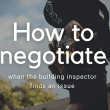READER: I have a question, brought on by Wellington’s crazy house market. I sold my house last year and have been living with family since then, looking for a smaller place to buy. I haven’t yet found anything that ticks the majority of my boxes.
I’ve developed relationships with three agents from different firms and do all the standard Trade Me / Realestate.co.nz checks every day.
My question: Is there anything else I can do / should be doing to find a house? People have suggested dropping fliers in letterboxes where I want to live, or asking people with big sections if they want to subdivide, but does that actually ever work?
I’m getting a bit concerned as I don’t want to be out of the market for too long but on the other hand, I don’t want to be rushed into buying a dog of a place either.
ANSWER: Congratulations on selling your home first! You certainly went with the right approach there. I know it may feel like a struggle now but it is totally the way to go.
It’s interesting watching the market in Wellington, it seems incredibly short of properties for sale. This has been a common theme over the past few years but will likely be exacerbated over the next few months with it being an election year. Often the market can go very quiet during this time as everyone sits tight until the results come in. Hang to your hats come October – I think there could be a big influx of property going on the market in Spring, especially if Labour win.
Note: This will apply in Auckland and other centres as well, possibly to a slightly lesser extent though.
Read: My 12 month market prediction (April 2017)
So this may limit your choice until October but don’t give up by any means.
A few ideas to help you find the right home:
1. Don’t ignore the ugly ducklings
Make sure you aren’t excluding houses that look crap online but may just be poorly marketed. Likely candidates are houses with bad photos or terribly difficult viewing times (usually because they are tenanted). Sometimes these are actually really nice homes but we discount them online because they look cluttered or un-attractive, the lawns aren’t mowed and they don’t have open homes.
Read: 7 ways to find houses with less competition
2. Review houses that have been on for months
Those ones that end up at the bottom of the list on trademe & realestate.co.nz because they have been on a while. They are worth checking through once a week as they may have had a price change (or an asking price added) since you last looked at them if they didn’t sell at Auction or Tender.
3. Withdrawn listings
Ask the agents you are working with to go back through their companies withdrawn listings to see if there is something that might suit. Some smart agents might do this, but likely most won’t think of it.
Using their internal systems they should be able to contact properties that were on the market 6-18 months that where perhaps overpriced at that time or didn’t sell for some reason, their motivation may have changed now and they may be worth considering. I used to do this quite a lot for certain clients.
4. Ask agents to send a targeted letter to owners in your area.
You could do this yourself too, but agents can go into sites like rpnz.co.nz and propertyguru.co.nz and filter houses by your requirements. Eg. Show me all the houses in Brooklyn with at least 500sqm of land, 90sqm floor area and 2+ bedrooms with an RV between $500 – 800k that haven’t sold for at least 5 years (for example).
You will end up with a certain number of properties which they could send a letter to saying: I have a buyer looking for “X”… By any chance are you interested in selling your property in the near future? This is also a strategy I personally used quite a lot.
5. Expand your area.
Where are you looking currently? Are there other locations you would consider? You have probably already considered this but sometimes it helps to actually look at different options in person rather than online. I love occasionally going to something totally out of the box when I’m looking. For example – if you’re looking for a character townhouse in Mt Vic, go to an apartment in the City just for fun. Or look at a villa in Rongotai. Go out of your ideal comfort zone and you might just fall in love with a home or area you didn’t expect to.
I lived in Johnsonville / Newlands for 30 years but when my Wife moved to Wellington we rented an apartment by the Basin Reserve – it was, and still is the coolest living situation I/we have ever had. It was single level, 90sqm, 2 bedrooms, had a covered carpark and lots of afternoon sun. Being able to walk to Oriental Bay, farmers markets and everything the City offers was a whole heap of fun. Annah was even able to walk to work!
6. Dropping fliers yourself can sometimes work.
Often owners have had bad experiences in the past with agents and they are happy to deal with a member of the public directly. Make it a personal, hand-written letter rather than a flier and personalise it as much as possible (eg. with details on your situation). Tell them if you are a home buyer looking for somewhere to live, rather than a developer or investor.
Drop 4 or 5 to houses you like the look of from the street and see what happens. You could also do this for properties that are currently available for rent. Especially ones that are being rented on trademe by the owner themselves. This particular idea could be well worth looking at as these people are sometimes open to selling for the right price.
You can use sites like homes.co.nz or trademe property insights to get an idea of value (to make sure you aren’t wasting your time) before you call / email.
In conclusion
At the end of the day, don’t rush into anything. I don’t think Wellington (or Auckland) will see the same crazy growth it did last year, I predict a much steadier rise (or treading water period) on the horizon, with a weird holding pattern being the norm until we get through the election.
Personally – I have decided to rent for the next 6 months (in Auckland) rather than buy. This is for a number of reasons but certainly a big part of it is that I feel like we are unlikely to miss out on a whole lot of capital growth by not owning the home we live in for the next 6-12 months.









